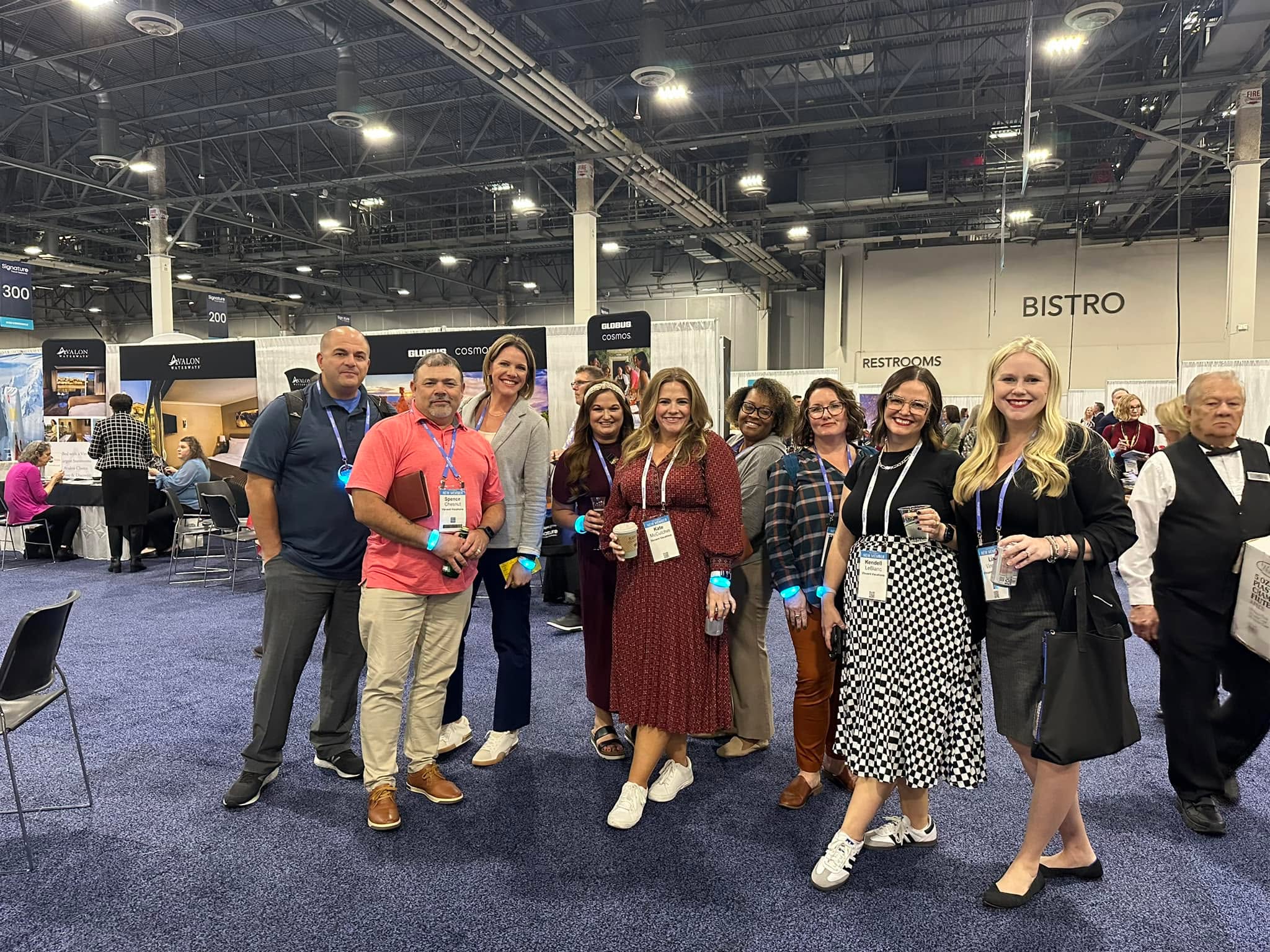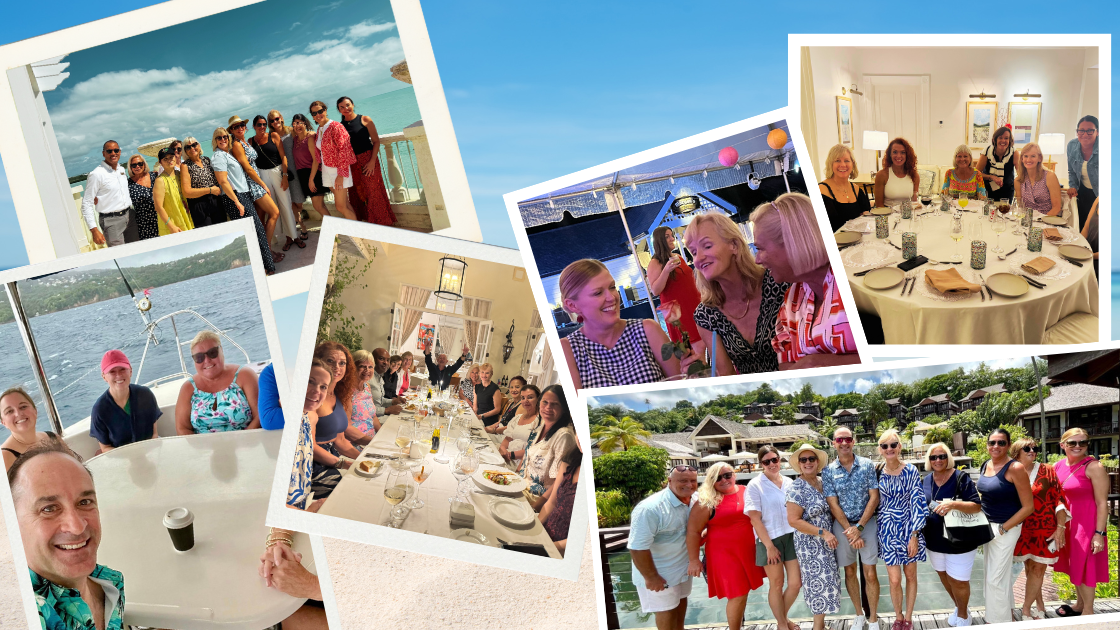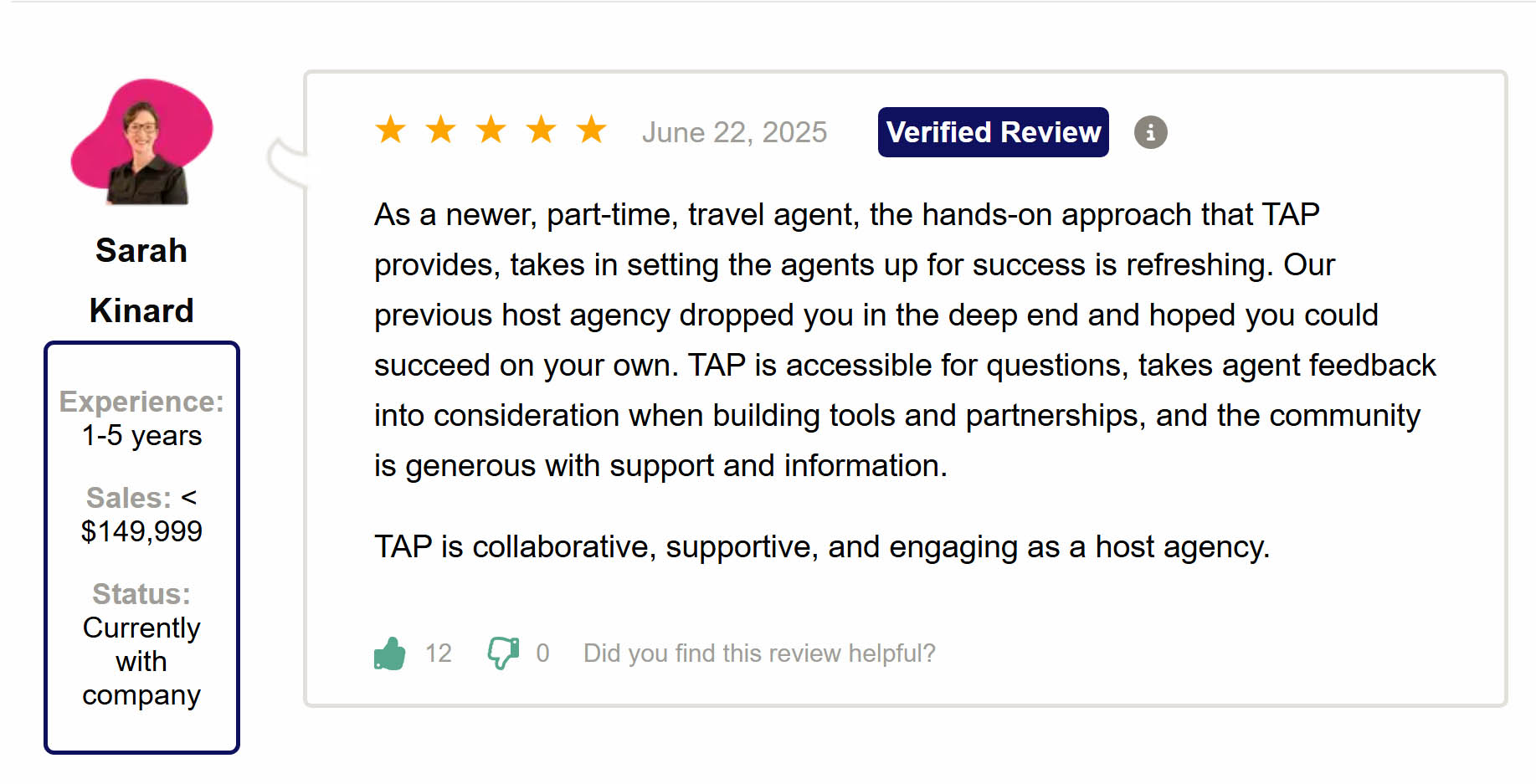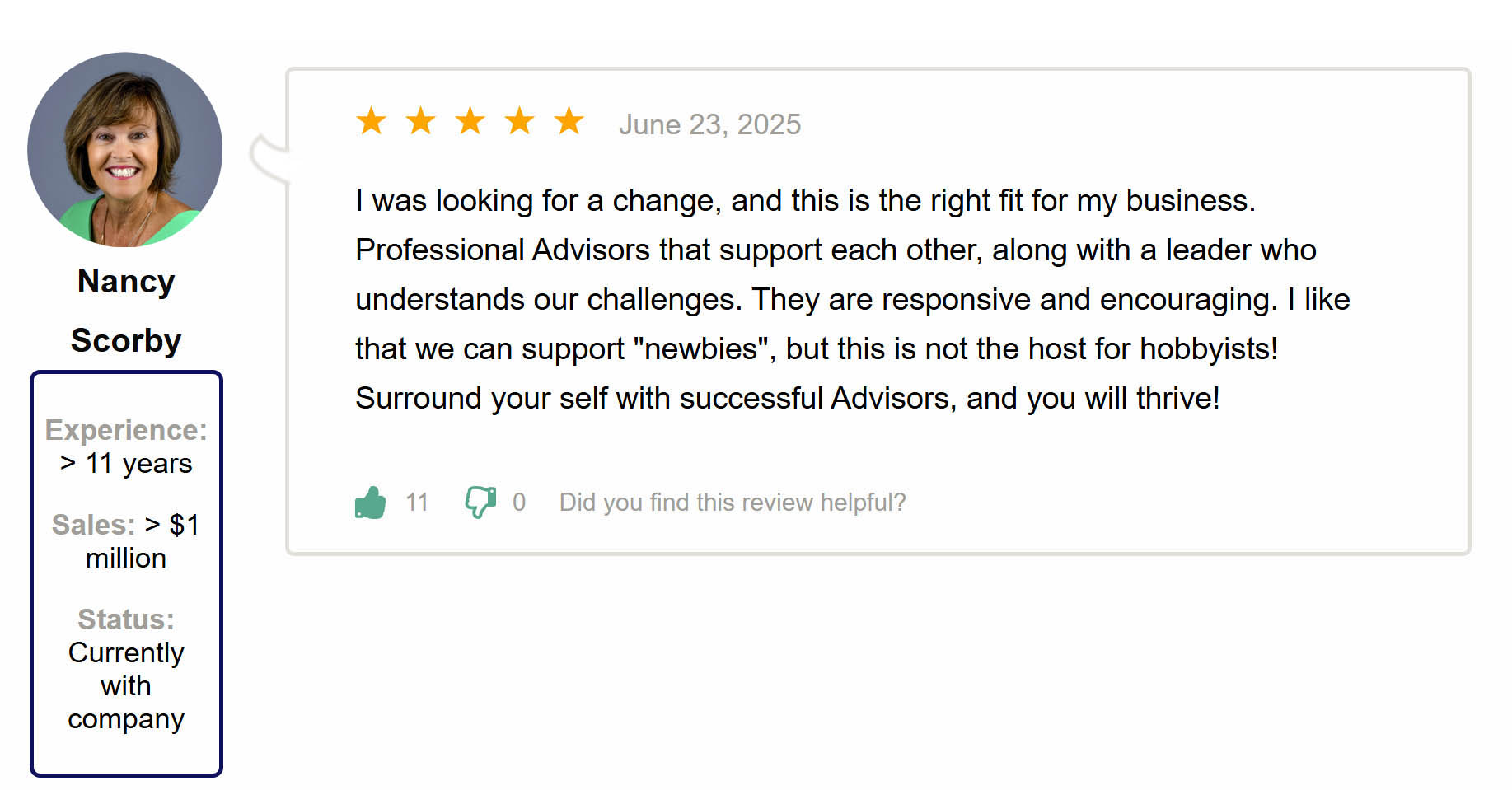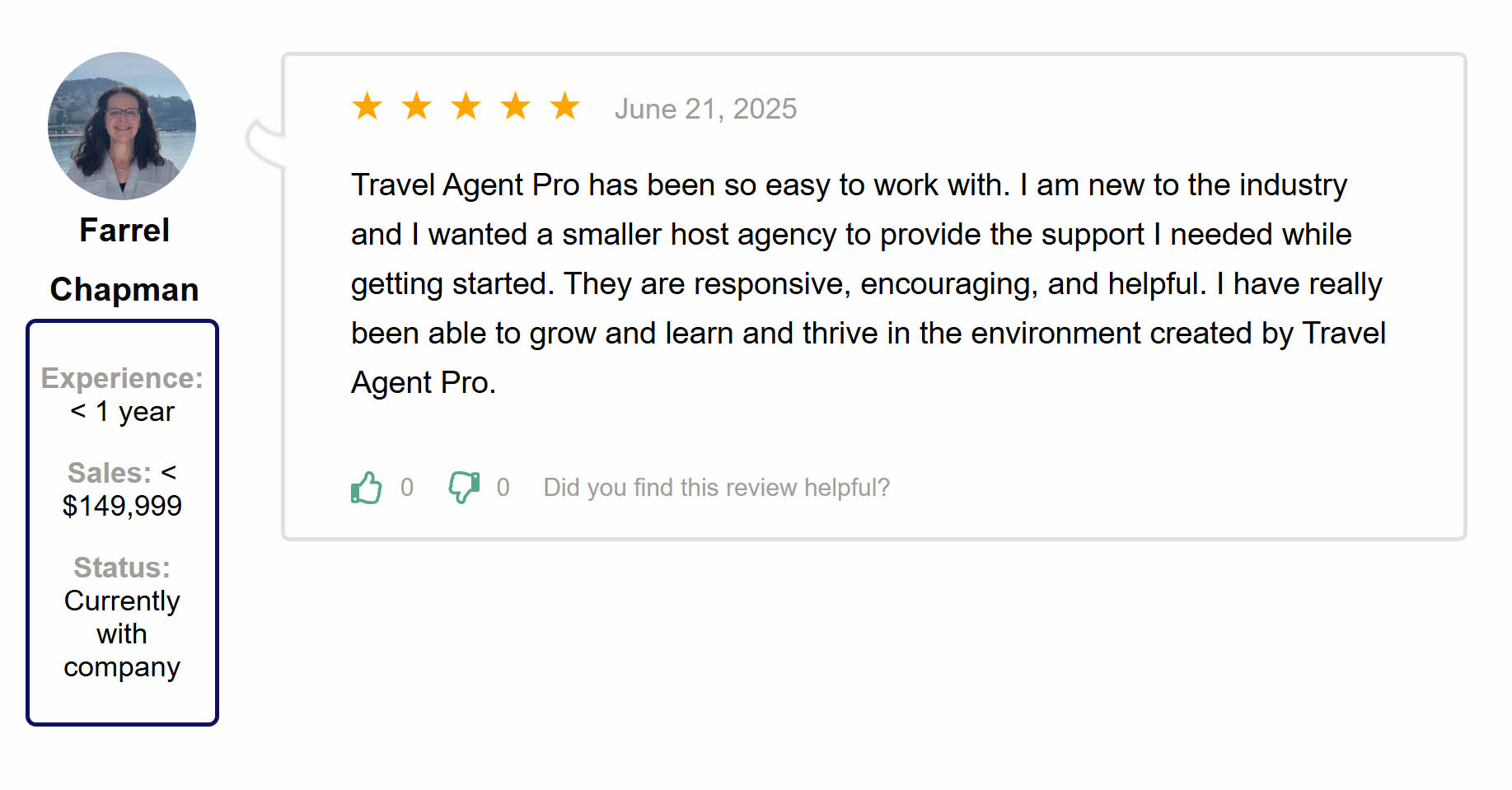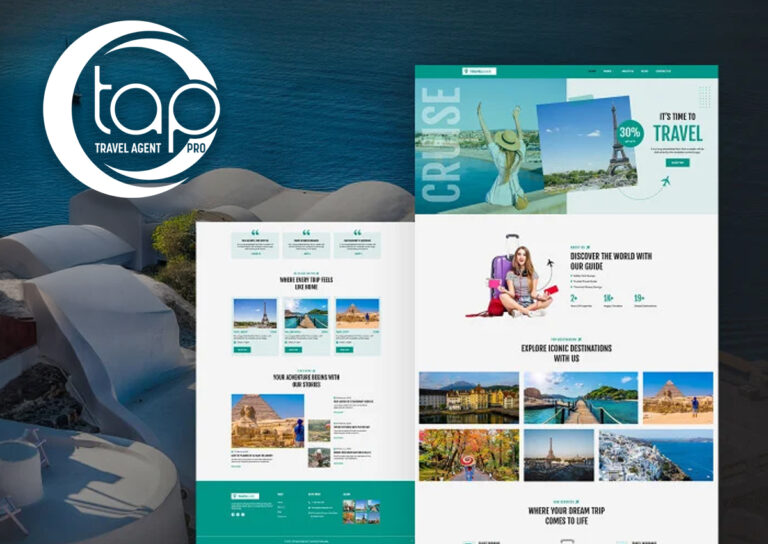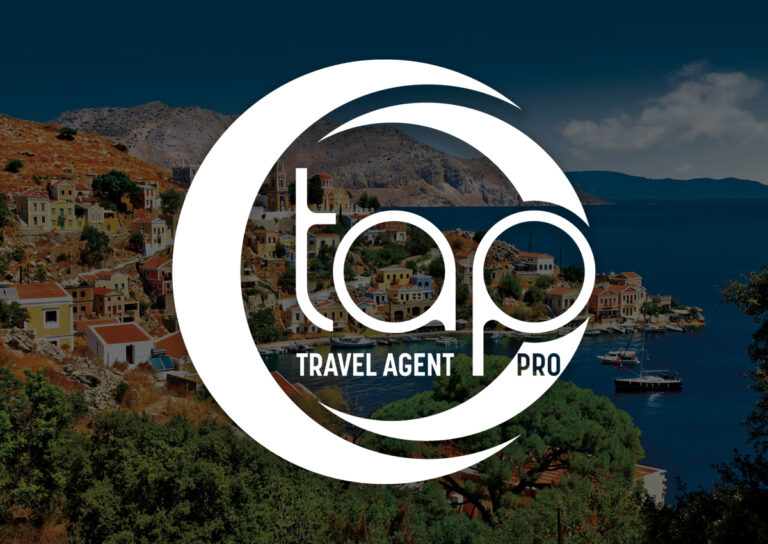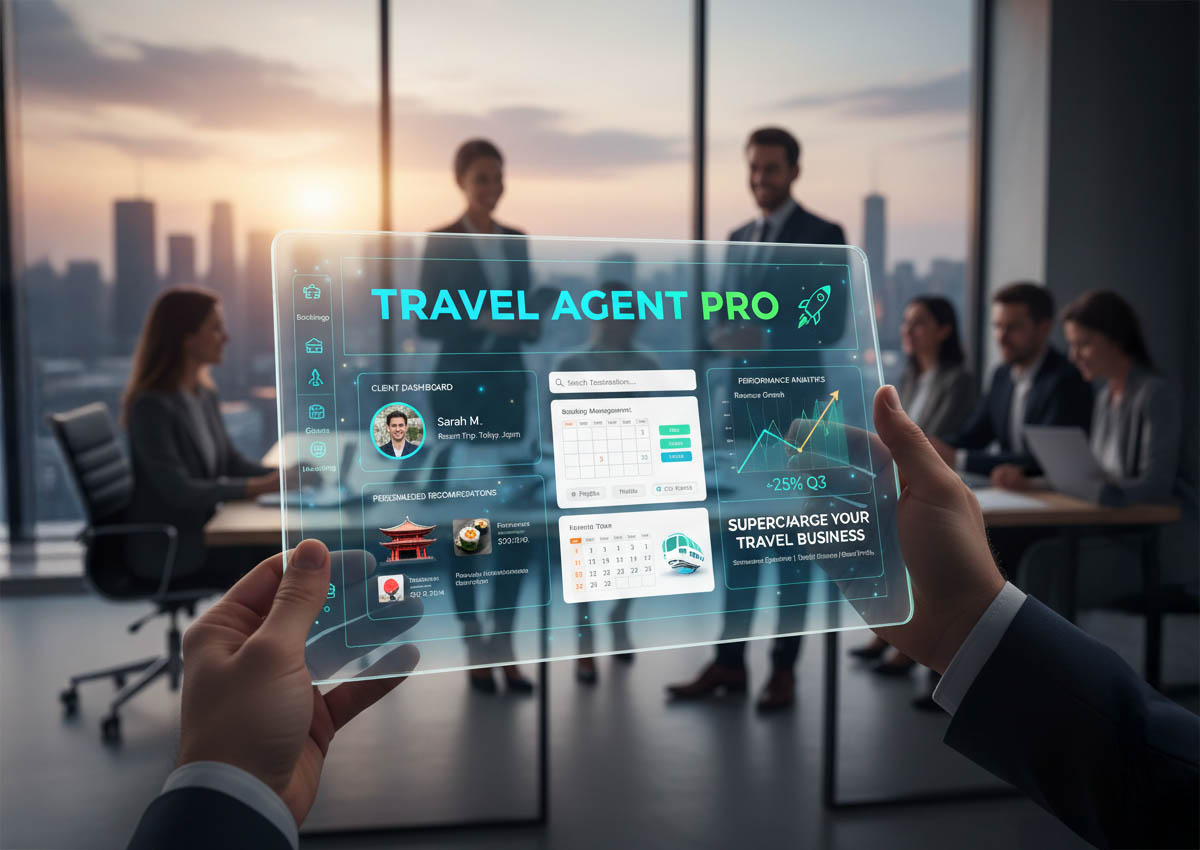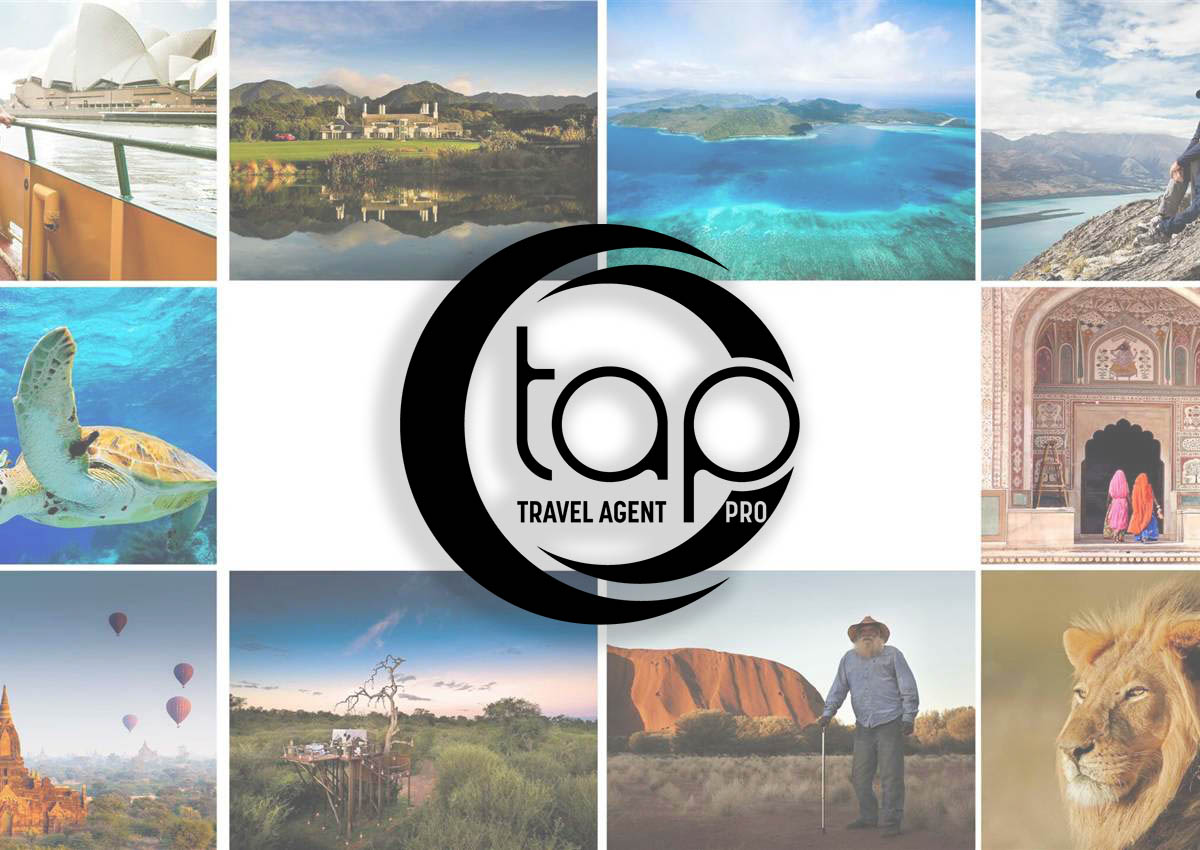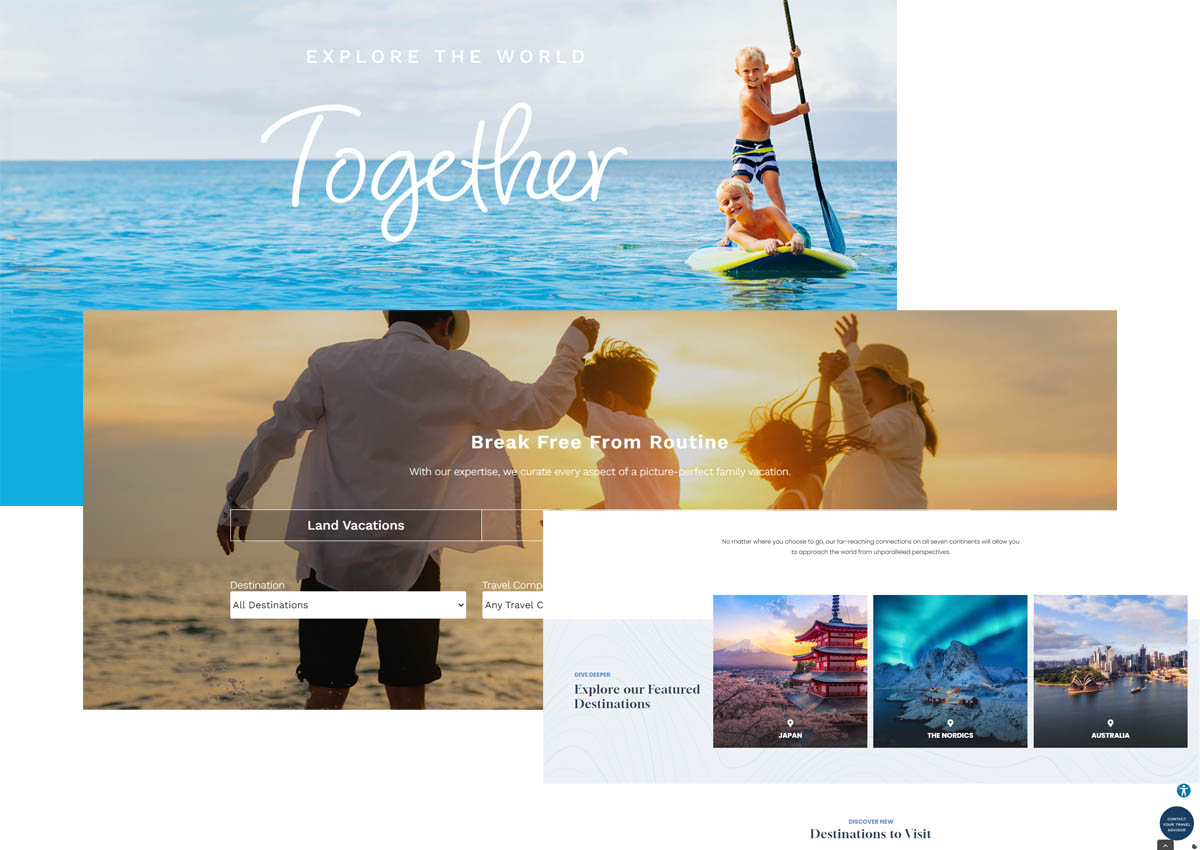Category :
Travel Niches & ProductsGroup Cruises Guide For Travel Agents
To learn more techniques and how to create and grow your own travel business, sign-up to become a member today!
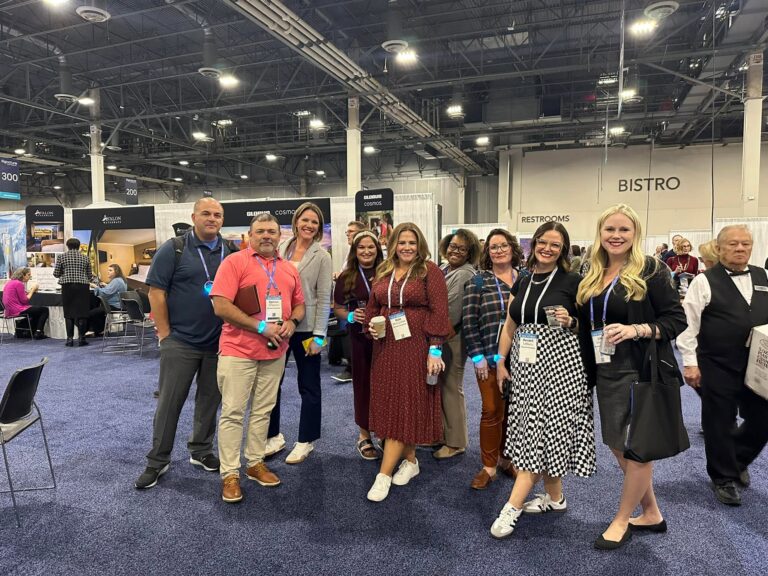
- Unlock higher commission potential by focusing on group cruise bookings.
- Simplify your sales process and build long-term client relationships with group travel.
- Diversify your income streams by targeting niche markets like affinity groups and corporate incentives.

Looking for travel agent training for cruise specialists? This article is a great start!
If you’re new to group business, selling group cruises offers a fantastic opportunity to boost your income while making the most of your passion for travel.
Not only do group bookings bring more fun into the process by organizing exciting shared experiences, but they also help you earn more than by booking individual travel. In fact, group cruises offer more profitability, ease of selling, and the chance to create long-term success by attracting repeat clients.
“You’re doing what you do every day, only when you put a group together, you make it more profitable for yourself.”
Interested in learning more about selling lucrative group travel? Check out our other articles on groups:
- The Ultimate Destination Weddings Guide for Travel Agents
- Why Travel Agents Should Focus on Selling Group Travel
- Strategies to Attract Lucrative Corporate Incentive Groups!
- Group or Escorted Tour Travel
Outline for Group Cruises Guide
- Introduction to Group Cruising: Having More Fun, Making More Money
- Overview of why group cruising is more profitable than individual bookings.
- The opportunity to leverage groups for higher commissions and long-term success.
- 1. Why Sell Group Cruises?
- Higher Profits: Group bookings provide more revenue than individual travel (FIT).
- Ease of Selling: Once a group is established, it's easier to fill spaces without constant back-and-forth.
- Lower Competition: Group cruises face less direct competition from other agents, leading to higher profitability.
- Repeat Business: Group cruisers often become repeat clients.
- First-Time Cruisers: Groups attract first-time cruisers who may not travel alone but will with a group.
- Diversification: Allows you to tap into various markets like affinity groups, family reunions, corporate events, etc.
- 2. Identifying Potential Group Cruise Markets
- Affinity Groups: Clubs, organizations, or people with a common interest (e.g., Shriners, Elks, church groups).
- Special Interest Groups: Music lovers, book clubs, health-conscious travelers, and hobby enthusiasts.
- Family and Friends: Multi-generational trips, family reunions, etc.
- Corporate Incentives: Reward programs or corporate retreats (though currently slower to recover post-COVID).
- Fundraising Groups: Charity organizations looking to raise money through group cruises.
- 3. How to Find Group Leaders
- Identify Decision Makers: The most influential person in the group may not always be the official leader.
- Community Involvement: Start within your community to build relationships and identify potential group leaders.
- Branding Yourself: Position yourself as a group cruise specialist in your community and network.
- Develop an Elevator Pitch: Be ready to explain why cruising, why your agency, and why now.
- 4. Selling Group Cruises: The Process
- Patience and Persistence: Be prepared for a longer sales cycle; groups require ongoing communication.
- Qualify the Group: Identify common interests, communication vehicles, and group leader expectations.
- Hot Buttons: Learn the specific needs, wants, and motivations of the decision-maker to tailor your proposal.
- 5. Managing Group Logistics
- Blocking Cabins: Anticipate different room types and overestimate the initial number of cabins to ensure availability.
- Negotiating Amenities: Secure perks like onboard credits, cabin upgrades, or group leader benefits.
- Handling Deposits and Payments: Understand the group's timeline for deposits and final payments. Pay attention to cruise line recall dates.
- 6. Tools and Support Available
- Cruise Line Partnerships: Leverage the benefits of working with major cruise lines that cater to groups (e.g., Norwegian, Royal Caribbean, Celebrity).
- Group Management Tools: Use systems that simplify group booking management, such as CRM systems or group accounting software.
- Team Leader Assistance: Utilize the experience of team leaders for complex group bookings or large groups.
- 7. Differentiating Yourself in the Group Market
- Escorted Cruises: Promote cruises where you or a group leader will be present to provide personal attention.
- Tailored Experiences: Create themed group cruises (music, wellness, educational) to attract niche markets.
- Long-Term Strategy: Focus on building long-term relationships with group leaders for repeat bookings.
- 8. Handling Challenges in Group Sales
- Managing Expectations: Ensure that group leaders have realistic expectations regarding pricing and benefits.
- Complicated Groups: Recognize when to involve higher-level support for complex groups (e.g., large corporate events).
- Dealing with Rejection: Be resilient, and move to the next opportunity if a group doesn’t pan out.
- 9. Examples of Successful Group Cruises
- Provide a few examples of different types of group cruises and their success (e.g., music cruises, fundraising cruises, family reunions).
- 10. Summary and Action Steps
- Recap of the key points: higher profit, ease of selling, and diversification.
- Call to action: Start branding yourself as a group specialist and seek out group opportunities in your community.
Introduction to Group Cruising: Having More Fun, Making More Money!

If you’re new to group business, selling group cruises offers a fantastic opportunity to boost your income while making the most of your passion for travel. Not only do group bookings bring more fun into the process by organizing exciting shared experiences, but they also help you earn more than by booking individual travel. In fact, group cruises offer more profitability, ease of selling, and the chance to create long-term success by attracting repeat clients.
“You’re doing what you do every day, only when you put a group together, you make it more profitable for yourself.”
Why Group Cruising is More Profitable than Individual Bookings
One of the biggest advantages of group cruises over individual bookings is the profitability. Here are some key reasons why:
- Higher Commissions: When you book a group, you’re handling multiple cabins at once, which often comes with commission bonuses or extra amenities that increase your revenue.
- Less Competition: Selling group cruises means you’re not constantly competing with other agents. Once a group is established, it's exclusive to you, and clients tend to book within that framework.
- Group Pricing Benefits: Cruise lines often offer reduced rates or additional perks for group bookings, such as onboard credits, complimentary cabins for group leaders, or upgrades. This makes the overall package more attractive without cutting into your earnings.
“It’s more profitable. Your opportunity is there in a controlled environment not to have to compete with other travel agents and give your valuable commission away.”
Leveraging Group Cruises for Higher Commissions and Long-Term Success
Group cruises offer a tremendous opportunity to build long-term success. Once you’ve booked a successful group cruise, it becomes easier to sell future ones. Group bookings can lead to repeat business, as satisfied travelers return for more.
Here are several ways to leverage group cruises:
- First-Time Cruisers: Many people who haven’t cruised before will join a group because they feel more comfortable traveling with friends or organizations. Group dynamics encourage first-timers to book.
- Crowd Dynamics: When people see that a group they’re familiar with is traveling, they often jump on board.
“It attracts first timers... now they’re pulled in by this crowd dynamic, by this group dynamic”.
- Repeat Business: After a great experience, group travelers often book their next vacation with the same agent, generating repeat business and boosting your client base.
To sum it up, the group cruise market is an untapped goldmine for new travel agents. With proper planning, patience, and a commitment to building relationships, group sales can quickly become a major revenue stream for your travel business. Consider joining Travel Agent Pro to gain access to exclusive resources and training to maximize your success in this lucrative market.
1. Why Sell Group Cruises?

Group cruises offer a wide range of advantages for travel agents, especially those new to the business. By focusing on group bookings, you not only increase your earnings but also simplify the sales process and create opportunities for long-term success. Here’s why selling group cruises is a game-changer:
Higher Profits
Group bookings allow you to generate more revenue compared to individual travel bookings, often referred to as FIT (Free Independent Travel). When you sell a group, you're handling multiple cabins at once, and cruise lines typically offer incentives such as commission bonuses or complimentary cabins for group leaders. This significantly increases your potential earnings without the need to sacrifice part of your commission.
"You're doing what you do every day, only when you put a group together, you make it more profitable for yourself."
Ease of Selling
Once a group is established, selling becomes easier. Rather than dealing with individual preferences and itineraries, the group dynamic simplifies the process. Group members generally stick to the same destination, itinerary, and cabin type, reducing the back-and-forth negotiations that can occur with individual bookings.
"When you get a group in place... the process becomes easy." "All you need to ask is, 'What category would you like, and how would you like to deposit?'".
Lower Competition
Group cruises tend to face less direct competition from other travel agents. Once you establish a group, you’re the primary contact for that booking, making it less likely that clients will price-shop with competitors. This controlled environment allows you to offer a unique package tailored to the group’s needs, which sets you apart from other agents.
“Your opportunity is there in a controlled environment not to have to compete with other travel agents and give your valuable commission away”.
Repeat Business
One of the great benefits of group cruising is that it often leads to repeat business. People who cruise with a group for the first time tend to enjoy the experience and book again, either with the same group or for a future individual trip. This creates a steady stream of returning clients, which is essential for long-term success as a travel agent.
First-Time Cruisers
Groups are particularly effective at attracting first-time cruisers. Many people may hesitate to cruise alone but will happily join a group because it provides a sense of community and security. This crowd dynamic can help you reach new clients who may have otherwise never considered a cruise.
“It attracts first-timers... they want to be with the Shriners, they want to be with the Elks, they want to be with the Red Hatters on their social events. They may not have cruised before, but now they’re pulled in by this crowd dynamic”.
Diversification of Markets
Group cruises allow you to diversify your client base. You can cater to a variety of markets, including affinity groups, family reunions, corporate retreats, and even special interest groups like health and wellness or music fans. By diversifying, you create multiple revenue streams and reduce your dependence on a single type of client.
There’s no shortage of opportunities, from senior organizations to fraternal groups.
“The opportunities are endless. You just need to get out there, just walk around, talk to people and keep your nose to the ground”.
By selling group cruises, you not only increase your profitability but also position yourself to grow a sustainable, diverse business with repeat clients. It’s a powerful strategy for travel agents looking to make a significant impact in the cruise industry. Travel Agent Pro can provide you with the tools and resources to excel in this area.
2. Identifying Potential Group Cruise Markets
Become a Travel Agent: Unleash Your Full Potential
Ready for a career that's as fulfilling as it is rewarding? Becoming a travel agent with TAP means building a business around your passion for travel.

One of the most exciting aspects of selling group cruises is the diversity of markets you can tap into. From social clubs and hobby enthusiasts to family reunions and corporate events, group cruising appeals to a wide range of clients. By identifying and targeting these markets, you can build a successful and diverse travel business. Below are some of the most lucrative group cruise markets to consider:
Affinity Groups
Affinity groups are made up of people who share a common interest, activity, or organization. These groups can range from social clubs to professional organizations, religious groups, and more. Popular examples include the Shriners, Elks, and church congregations. These groups often cruise together for social bonding, shared experiences, or events such as conventions.
“Affinity or special interest groups... are pulled together by some common attraction, some common bond. This is the area we are going to focus on today”.
Special Interest Groups
Special interest groups provide a unique opportunity for themed cruises that cater to particular hobbies or passions. Whether it’s music lovers, book clubs, health-conscious travelers, or even paranormal enthusiasts, there is a group cruise for nearly every niche. You can organize cruises around concerts, wellness programs, or educational workshops to appeal to these special interests.
For instance, Travel Agent Pro has organized themed cruises for music lovers, such as the "Do Wop Hall of Fame" cruise, and wellness enthusiasts like those following "The Zone Diet," which features health and weight management programs onboard.
Family and Friends
Family and friends often travel together for multi-generational trips, reunions, or milestone celebrations such as weddings, anniversaries, and birthdays. These groups appreciate the convenience of cruising, where various activities and amenities are available for all age groups, making it easier to plan large gatherings.
Family groups can also benefit from special offers such as discounted rates or complimentary cabins, making cruising a cost-effective option for large gatherings.
Corporate Incentives
Corporate group travel has long been a popular market for cruises, particularly for reward programs, team-building activities, or annual retreats. Although this segment has been slower to recover post-COVID, it remains a valuable market with enormous potential as businesses resume in-person events and conferences.
Many acknowledged the strength of this market before the pandemic, noting,
“The corporate marketplace... was a massive market, $25 billion a year in travel before COVID. I believe it’s going to be the last part to come back”.
Fundraising Groups
Charity and nonprofit organizations often use group cruises as a means to raise money while providing an enjoyable experience for their supporters. Cruises are a popular choice for fundraising because they combine travel with a built-in social component, offering a memorable way to engage donors.
For example, Travel Agent Pro has successfully run fundraising cruises with groups like the Elks, raising over $300,000 for charity since 1996.
By understanding and targeting these potential group cruise markets, you can diversify your client base and offer customized cruise experiences that appeal to a wide range of travelers. Each market presents its own set of opportunities for growth and profitability, helping you build a sustainable and successful travel business. Travel Agent Pro can provide you with the resources and support to effectively target these markets.
3. How to Find Group Leaders

Finding the right group leaders is key to building successful group cruise bookings. Group leaders can come from various backgrounds—affinity clubs, special interest groups, or even corporate settings—and they are instrumental in helping you sell the group cruise. However, identifying and working with these leaders requires strategy and relationship-building.
Identify Decision Makers
In any group, the most influential person may not always be the one with the official title. When targeting groups, it’s important to identify the real decision-makers. These are the individuals who can rally others and make key decisions about booking the group cruise. Don’t assume the group president or chairperson is always the right contact—sometimes the person with the most influence is someone behind the scenes.
"Be careful with this because it's not obvious... the decision maker is the person that you think it will be".Asking questions and learning about the group's dynamics will help you pinpoint who holds the decision-making power.
Community Involvement
A great place to start finding group leaders is within your own community. Whether through local clubs, professional associations, or religious groups, building relationships within your community helps you identify key individuals who may be interested in organizing group cruises. Attend local events, network, and participate in activities where you can meet potential group leaders.
"Develop community contacts because this is where the business is going to come from. It’s going to come right out of your community where you've already got the contacts, you've established them, and the people have faith in you and trust you".
Branding Yourself
Positioning yourself as a "Group Cruise Specialist" within your network and community is crucial for attracting group leaders. People need to see you as the go-to expert for organizing group cruises, and this starts with branding yourself effectively. Make sure your messaging reflects your specialization in group cruising, whether through business cards, social media profiles, or networking events.
"I started to brand myself as a group specialist, and all of a sudden I had group business coming in because people believed I was a group specialist".
Develop an Elevator Pitch
You need to be prepared with a quick and compelling way to explain why group cruising is a great opportunity, why they should choose your agency, and why now is the best time to book. This elevator pitch will be crucial when you meet potential group leaders, allowing you to make an impact and spark interest quickly.
Your pitch should cover:
- Why cruising? Explain the benefits of cruising for groups, such as affordability, ease of planning, and a variety of onboard experiences.
- Why your agency? Highlight your expertise and the support your agency provides, from booking to managing logistics.
- Why now? Stress the pent-up demand for travel and current promotions or incentives that make it an ideal time to book.
“Start the process of branding yourself tomorrow. And what do I mean by brand yourself? You are no longer just a travel agent. You are a group cruise specialist”.
By focusing on these strategies, you can successfully identify and engage with group leaders who are instrumental in booking group cruises. Building relationships, positioning yourself as a specialist, and delivering a strong elevator pitch will help you land more group business and grow your travel agency. Travel Agent Pro offers specialized training to help you craft the perfect elevator pitch and brand yourself effectively.
4. Selling Group Cruises: The Process

Selling group cruises is a rewarding but more intricate process than selling individual travel. It requires a different approach, particularly when it comes to dealing with group leaders, managing group dynamics, and coordinating logistics. Understanding the key elements of the group sales process can help you close more group bookings successfully.
Patience and Persistence
Selling group cruises requires a longer sales cycle compared to individual travel. From the initial inquiry to final bookings, the process often involves multiple stages of communication, negotiations, and follow-ups. Group leaders may need time to rally their members, finalize details, and gather deposits, so be patient throughout the process. Persistence is equally important—regular check-ins and follow-ups ensure that the group stays engaged.
"You've got to be patient and persistent on the front end of this process, because virtually every group... somebody in front of you has already contacted about doing group business".Staying committed to the group leader and maintaining open lines of communication will set you apart from competitors who may give up too soon.
Qualify the Group
Before investing significant time and effort into selling a group cruise, it’s essential to qualify the group. Ask the right questions to determine if the group is viable and if the leader has realistic expectations. Identify the group’s common interests and ensure they have the right communication channels (email, social media, or regular meetings) to promote the cruise effectively to their members. Understanding how they communicate can make the difference in getting enough participants to meet your group’s booking goals.
A successful group needs several key factors:
"Some common interest, a large target, history of travel, communication vehicle, [and a] strong group leader".These elements indicate whether the group has potential for a successful booking.
Hot Buttons: Focus on Needs, Wants, and Motivations
Each group leader has specific "hot buttons"—the unique needs, wants, and motivations that drive their decision-making. Understanding these hot buttons is critical when tailoring your proposal to secure the group booking. For example, some group leaders may prioritize financial benefits like complimentary cabins or onboard credits, while others might focus on creating a memorable experience for their members. Learning what the group leader values most will help you craft a more compelling offer.
"Identify the decision maker’s hot buttons—what the hot buttons are, the decision maker’s needs, wants, and interests. If you put together a proposal that meets the decision maker’s needs, wants, and interests, you are well on your way to getting group business".
By focusing on patience, persistence, and understanding the unique dynamics of each group, you can significantly improve your chances of success when selling group cruises. Qualifying the group early on and tailoring your offer to the leader's specific needs ensures a smoother process and increases the likelihood of repeat business. Travel Agent Pro provides resources and training to help you master these skills and close more group bookings.
5. Managing Group Logistics
For Both Aspiring and Experienced Travel Advisors
Build a travel business doing what you love - on your own terms. Start booking trips the day you join, with a best-in-class education curriculum developed by industry experts.

Successfully managing group cruise logistics is crucial for ensuring a smooth experience for both the group leader and the travelers. From blocking the right number of cabins to securing enticing perks, your attention to detail during the planning phase will greatly impact the success of the group cruise. Below are the key logistical elements to focus on when organizing group cruises.
Blocking Cabins
When managing a group cruise, it’s essential to block enough cabins to meet demand while anticipating the various room preferences within the group. Cruise lines typically allow you to block a set number of cabins in different categories (inside, oceanview, balcony, etc.), but it’s always a good idea to overestimate slightly to ensure availability as the group fills up.
"If you think you're going to need 20 rooms, it might be a good idea to block 25 or 30 with a couple extra balconies or ocean views in the mix".This strategy helps you avoid last-minute shortages, especially as certain cabin types may sell out quickly.
Negotiating Amenities
One of the advantages of booking a group cruise is the opportunity to negotiate added perks for the group, such as onboard credits, cabin upgrades, or even free cabins for the group leader. These amenities can enhance the appeal of the cruise and incentivize more people to book. Knowing what amenities are available and how to leverage them effectively can make a significant difference in the success of your group booking.
It's important to negotiate perks:
"Find out what the amenities are... maybe it's onboard credit, but maybe it's an upgrade".Understanding the full scope of available amenities allows you to offer an enticing package that meets the group’s needs and expectations.
Handling Deposits and Payments
Managing the timeline for deposits and final payments is one of the most important logistical elements when organizing group cruises. Cruise lines often require a group deposit upfront to hold the cabins, followed by periodic payments before the final balance is due. Understanding these timelines and ensuring that the group leader and participants adhere to them is essential to keeping the booking on track.
Additionally, it’s crucial to pay attention to cruise line recall dates. This is when the cruise line may reclaim any unsold group cabins, often resulting in price increases or reduced availability.
"If the cruise line specifies that because the group is over X number of rooms... you’ve got a deposit on that group to confirm the space, hold the space".Missing a recall date could mean losing valuable cabins or having to rebook at higher rates, so staying organized with timelines is key.
By carefully managing group logistics, you can ensure that everything runs smoothly from the initial inquiry to final payment. Blocking enough cabins, negotiating valuable amenities, and keeping a close eye on payment deadlines will help you provide a seamless experience for your group clients, ultimately leading to repeat business and referrals. Travel Agent Pro offers tools and support to help you manage these logistics effectively.
6. Tools and Support Available

When selling group cruises, having the right tools and support can make all the difference in managing the complexities and ensuring a successful booking. Leveraging cruise line partnerships, utilizing group management tools, and working closely with team leaders are key strategies that can streamline the process and help you deliver a seamless experience for your clients.
Cruise Line Partnerships
One of the biggest advantages of selling group cruises is the ability to partner with major cruise lines that specialize in catering to groups. Cruise lines like Norwegian, Royal Caribbean, and Celebrity offer dedicated support for group bookings, from providing discounted rates to offering valuable amenities. By working with these cruise lines, you can tap into their resources and ensure that your group clients receive the best experience possible.
Partnerships are important, saying,
“Norwegian, Celebrity, Royal Caribbean... were the ones that seemed to have what we needed to make groups work”.These cruise lines are known for their group-friendly policies, making them ideal partners for your group bookings.
Group Management Tools
Managing a group booking can be complex, but with the right tools, you can streamline the process. Using customer relationship management (CRM) systems, group accounting software, or specialized booking platforms helps you keep track of participants, manage payments, and coordinate logistics more efficiently. These tools simplify communication with both the group leader and individual travelers, reducing the chances of errors and ensuring a smooth booking process.
Travel Agent Pro, for example, has a robust system in place to help agents manage group bookings:
“A system which is available to you... very few, if anybody else, has available to them”.Leveraging these tools can save time and allow you to focus on providing a great experience for your group clients.
Team Leader Assistance
For complex or large group bookings, having access to experienced team leaders is invaluable. Team leaders can offer guidance on everything from negotiating contracts with cruise lines to handling the logistics of larger groups. If you’re working with a group that has special needs or unique requirements, team leaders can provide the expertise and support you need to ensure success.
Rely on team leaders:
“The team with years of experience is going to come in to help you out”.By collaborating with team leaders, you can tackle challenges more effectively and ensure that even the most complicated bookings run smoothly.
By leveraging cruise line partnerships, using the right group management tools, and working closely with team leaders, you can confidently handle group cruise bookings of any size. These resources provide the support and infrastructure you need to succeed in the group travel market. Travel Agent Pro provides access to these tools and experienced team leaders to support your success.
7. Differentiating Yourself in the Group Market

In a competitive travel industry, standing out as a group cruise specialist is essential. By offering unique value through escorted cruises, tailored experiences, and building long-term relationships with group leaders, you can set yourself apart from other agents and create a sustainable, successful business in the group market.
Escorted Cruises
One way to differentiate yourself is by offering escorted cruises, where either you or the group leader will
Learn more about this by signing up as a member, today! Travel Agent Pro Application Form.
To learn more techniques and how to grow your travel business, read more on our Pathfinder Series.


